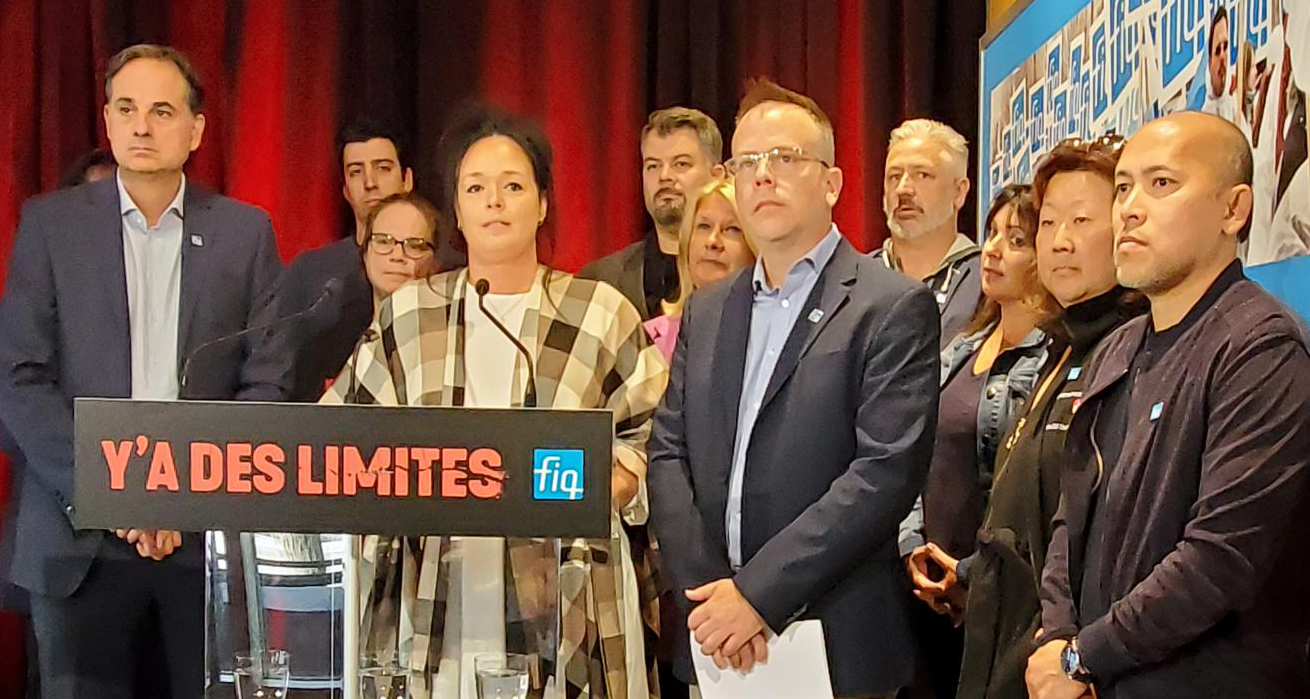
83% of healthcare professionals confirm they are too overworked to give patients all the care they need
The Fédération interprofessionnelle de la santé du Québec–FIQ surveyed its members to determine what care the nurses, licensed practical nurses, respiratory therapists and clinical perfusionists don’t have time to provide. The responses are clear: their workload is unreasonable!
83% of respondents indicated it was because of the workload that they have to reluctantly cut corners and not provide all the care that patients need. “Omitted care means not doing the teaching for a new mother who just gave birth. It means not having the time to talk to the family of a patient who just found out they have cancer. It means not having the time to take preventive action with homecare patients. All these omissions, caused by an excessive workload, have a real human and financial cost. This means sicker patients, for longer, and more healthcare professionals who are demoralized because they are unable to act as they should”, explained Julie Bouchard, President of the FIQ.
What is the omitted care?
The FIQ also asked respondents to specify the care omitted, either partially or completely.
- Only 65% of samples are done correctly. This could mean a blood sample omitted. Thus, it is not possible to determine if the patient has a kidney problem.
- Only 53% of healthcare professionals say they were able to assess their patients correctly, within the workload imposed on them. An assessment, or contributing to an assessment, is the most important key act for healthcare professionals. This assessment has an impact on all subsequent decisions, including those of other professionals, including physicians.
- Barely 33% of respondents were able to prepare the patient’s discharge from the institution with him and his family, for example. This can mean discharging a patient who has undergone major surgery, without having been able to properly explain how to care for his wound and running the risk of seeing him return to hospital in a worse state.
Legislating healthcare professional-to-patient ratios
“The only lasting solution to these problems, which have dragged on for too long, has been applied in Australia, in California and British Columbia has committed to doing it. We need to legislate healthcare professional-to-patient ratios and stick to it. To continue on the current path is to doom ourselves to failure. Healthcare professionals can’t take it anymore, and if we keep asking them to do more and more, they’ll simply go and do something else. Who can blame them? What we’re experiencing is not a labour shortage, but a run-for-your-life caused by appalling working conditions”, concluded Ms. Bouchard.
Healthcare professional-to-patient ratios, as demonstrated elsewhere, have the effect, over a period of a few years, of halting the exodus and stabilizing the health network. For example, ratios will stop the exodus of young professionals who would rather quit than have a career in the public network. They will enable some professionals who are off work due to exhaustion to return to work, without fear of being off sick again. Ratios will retain older professionals, instead of them retiring sooner. They will also change the public network’s image and will once again attract young people looking for a profession in health care.
Methodology
The survey was conducted by SOM with 9,663 respondents, between June 5 and 23, 2023. It is a snapshot of the last shift worked by the respondents. The breakdown between nurses, licensed practical nurses, respiratory therapists and clinical perfusionists reflects FIQ membership. The margin of error is 0.9%, with a confidence level of 95%. More detailed documents can be viewed on the FIQ website at: www.fiqsante.qc.ca/non-faits.